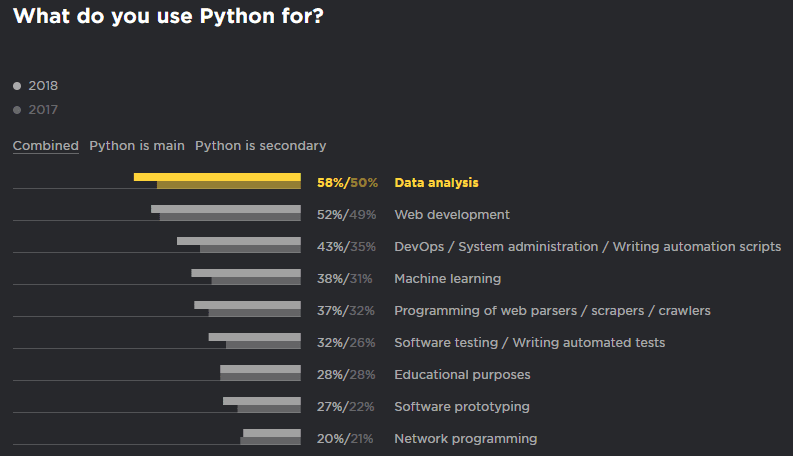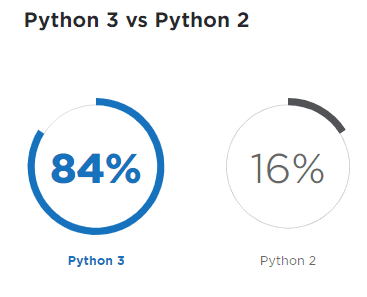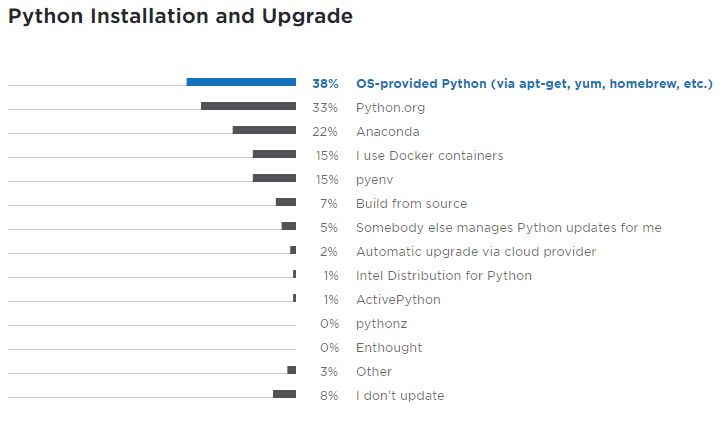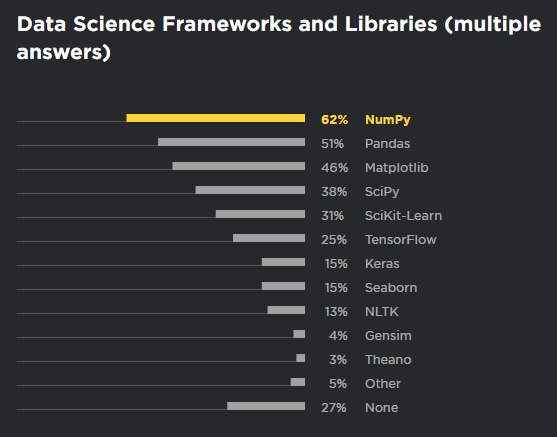A new survey by Python Software Foundation and JetBrains finds that adoption of Python 3 is growing fast, data analysis has become more popular than web development among Python developers, and Python developers majorly target IT and software development industry.
For the Python Developers Survey 2018, more than twenty thousand developers across 150 different countries were surveyed. It is the second survey by PSF and JetBrains in last two years.
10 key findings from the Python Developers Survey 2018
1. Python is used as primary language by 84% Python users
According to the survey, 84% of Python users choose Python as their primary language, whereas the remaining use it as a secondary option. The usage of Python as main language has increased by 5% from 79% in 2017.

Half of Python users also choose JavaScript, while 47% of them use HTML and CSS. The more languages used by Python developers included Bash/Shell (45%), SQL (40%), C/C++ (31%), Java (23%), PHP (13%), etc.
2. Python is used for both personal and professional types of projects
60% of Python developers said that they use Python for both personal and professional projects. 21% of them use it for personal purpose, while 19% use it for work.

3. Python is majorly used for data analysis and web development
An interesting thing about Python usage, according to the survey, is that developers are increasingly using it for data analysis as compared to web development.
Popularity of Python has increased by 8% for data analysis as well as DevOps, but only 3% for web development. Python usage for machine learning has also witnessed growth, from 31% to 37% in a year.

4. Python 3 is the most used version of Python
84% of Python developers use Python 3, while only 16% use Python 2. The popularity of Python 3 has significantly jumped in one year, from 75% in 2017 to 84% now.

One of the main reasons for decline is usage of Python 2 is that it is no longer developed actively, doesn’t get new features, and its maintenance is going to be stopped next year.
90% of Python developers use the latest version of Python for data science, while 82% use it for web development, and 81% for DevOps.
5. Python is mostly installed from Python.org or OS-provided package managers
Majority of users install Python either from python.org or with OS-provided package managers like APT and Homebrew. Installation of Python from Anaconda has increased by 7% in one year.

6. Flask and Django are the most popular frameworks for Python developers
The popularity of Flask among Python developers has increased by 15% in last year, which has now made it the most popular framework for Python developers, surpassing Django.

7. NumPy and Pandas are the most popular data science frameworks and libraries
The most used data science frameworks and libraries among Python developers are NumPy, Pandas, Matplotlib, and SciPy.
Other popular libraries specific to machine learning are SciKit-Learn, TensorFlow, and Keras.

8. Amazon Web Services (AWS) is the most used cloud platform among Python developers
Majority of Python developers who use cloud platforms prefer AWS. Google Cloud Platform (GCP), Heroku, DigitalOcean, and Microsoft Azure are the other popular cloud platforms among Python users.

Suggested reading: Top 4 development trends in cloud of which every developer should be aware of
9. Linux and Windows are the most preferred operating systems by Python users
69% of the Python users choose Linux as the development environment OS, while 47% developers choose Windows.

MacOs follows Linux and Windows with 32% usage, while BSD could hold only 1% share.
10. Most of the Python developers choose free and open source databases
According to the Python Developers Survey, majority of developers are choosing to use free or open source databases like PostgreSQL, MySQL, and SQLite.
The Python developers who do some form of machine learning or data engineering use non-relational databases like MongoDB and Redis.

For full results of the Python Developers Survey 2018, click here.
Images source: Python Developers Survey 2018 by Jetbrains and Python Software Foundation








